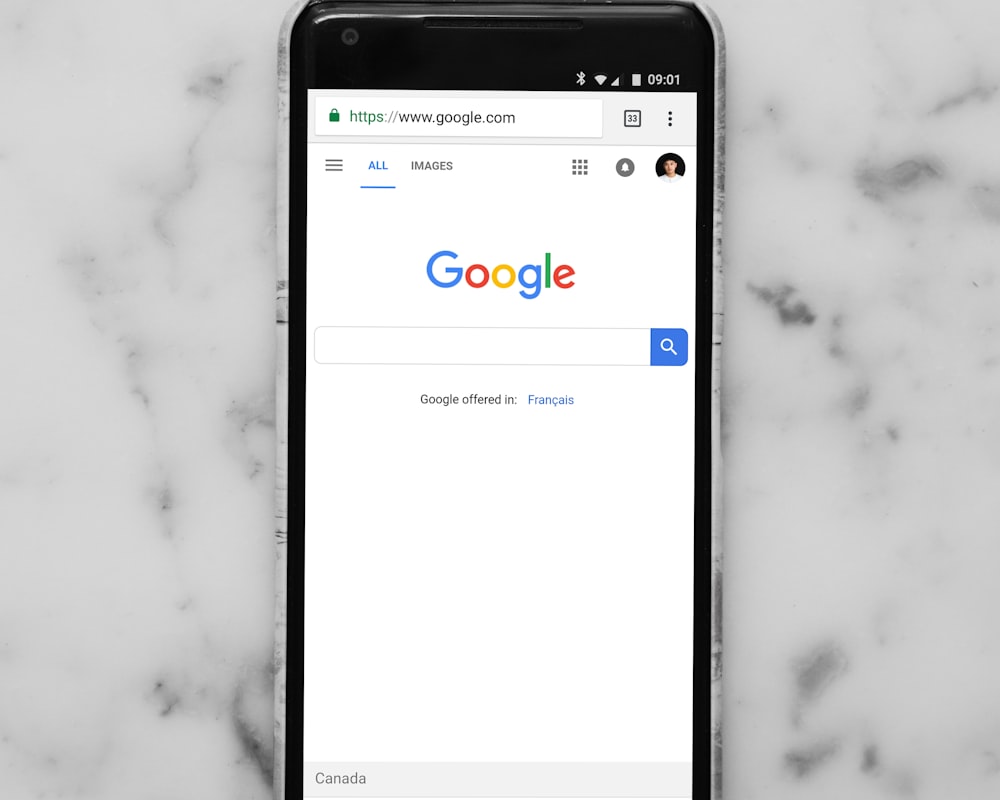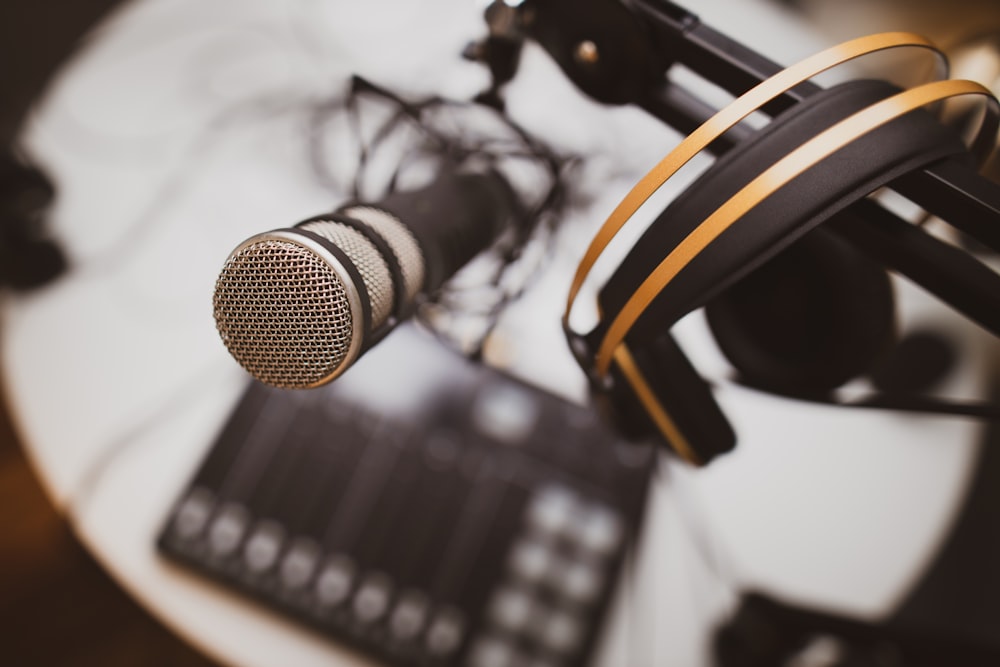
How to get more podcast listeners with better SEO
Wednesday, April 15, 2020
Finding listeners and getting people to listen is still the largest hurdle content creators face, and can make or break your podcast.
Search Engine Optimization (SEO) is incredibly important for content creators online, especially for podcasters.
In the following article, we'll talk about what SEO is, how it works, why it applies to podcasts, and some basic tips and techniques to help get your podcast found and ranked on Google.

Why is it so hard to get found online?
A large part of getting exposure is looking at the way people find and discover content online. For most people, finding content usually begins with a Google search of some kind. Yes, there are other search engines out there, but for the purposes of this article, we're going to stick to Google, as many of the following techniques will apply to other major search engines as well.
Also, keep in mind that Google owns 90% of the worlds searches; 95% if you live in the US.
First, let's briefly talk about how Search Engine Optimization (SEO) works. The following isn't intended to be highly technical, so don't worry if you're not a computer geek.
How keyword search and SEO works (in a nutshell)
Here are some things that people might type into Google's search bar when looking for a podcast:
- "star wars podcasts"
- "funny comedy podcasts"
- "best podcast on movies"
- "Joe Rogan and Elon Musk smoking weed"
- "podcasts on how to marry a Hot Pocket"
Each time a person types a search query (like one of the above examples) into Google, it uses a sophisticated algorithm that quickly finds the most likely candidates for what it thinks you are looking for, and returns a list of many results for you to choose from, in order from the most relevant (first results page) to least relevant to you (last results page).
Practially all Internet search engines work by "crawling" through all the webpages on the Internet and determine whether how high content is "ranked", or how high up it is on the list of results that are returned when you perform a search.
Search engine ranking itself is a deep subject, and is based on algorithms that are far beyond the scope of this post. These algorithms also include things like how long a website has been around, how often it publishes content, the website's content reliability, and other factors.
But the most important thing to remember is that SEO ranking relies heavily on text-based information to rank search results for webpages and practially all content on the Internet.
One of the top aspects of ranking webpages is the number of relevant keywords that are on a webpage. In general, the more relevant keywords that are found when crawling through a webpage, the higher the rank when search results are returned to users.
This is how SEO works in a nutshell.

Guess what? Podcasts are no exception.
That's right. It doesn't matter if you're searching for audio, video, images, or text.
Getting your podcast found and ranked is still dependent on basic, text-based keyword searches.
But...there’s a problem when it comes to search engines and podcasts, and here's why.
99% of the content that you want people to pay attention to lives within the digital audio (eg MP3, M4A, WMA, etc), and isn’t in a format that Google will understand or use.
As an example, let’s say that you’ve spent many hours recording, editing, and publishing your latest obscure/niche episode about Hot Pockets.
When Google makes its rounds of the Internet and comes across the webpage with your podcast episode, it’s designed to see the text and HTML of a webpage. Search engines will simply skip over your audio content.
An example of what Google might see:
- URL: iTunes.com/episode-322-how-to-legally-marry-your-hot-pocket-in-2020
- Metadata: [published on 02-02-2020 iTunes.com, by The Hot Pocket Dudes, 36:45 in duration]
- Description: “How to marry your Hot Pocket in 2020.”
- Actual Google keyword count: “Hot Pocket” = 3
An example of what might be inside your episode audio that Google will completely ignore:
- Your recorded content: “Today on Hot Pocket Dudes, we’ll be legally marrying our favorite Hot Pockets, and talking to you about all things Hot Pocket related...(30+ minutes of more Hot Pocket conversation)...thanks for listening!”**
- Missed keyword count (ignored by Google): “Hot Pocket” = 352
Keyword count in your title, description, URL, and metadata all matter.
But as for 352 times you mentioned the words "Hot Pocket" in your episode, they will all be ignored due to the reason that your audio isn't easily crawlable since it's not in text format. All the verbal content contained within your podcast audio, no matter how important or relevant, will simply be ignored.
That's why textual content is still incredibly important if you want your podcast to be visible and get found online.
If you take a look at some of the best podcasters currently on the web, their textual content in the descriptions, title, and other areas are keyword rich.
Now, this example is extremely oversimplified, but in general the more relevant textual content you publish with your podcast and episodes, the better.
TLDR: The better your SEO is, the higher you’ll rank on Google. The higher you rank on Google, the higher your chances are of being seen and listened to.

Tips for boosting SEO for your podcast
If you take a look at top podcasters like This American Life, Freakanomics Radio, or Masters of Scale, they’ve got tons of textual content to compliment their audio content.
While you don’t need to copy them exactly, you can learn a few things from them that will help people find you online.
TIP #1: Use markdown and HTML to format your text
HTML is the lingua franca of the Internet. Search engines pay close attention to not just the text on a page, but also how it’s formatted.
Search engines love HTML because it helps them rank specific pieces of content (like headings, bold text, and paragraphs) more heavily than others. If your textual content is in plain text, it makes it difficult for search engine algorithms to determine what to pay attention to in your content.
If you are not tech-savvy and have avoided learning how to format text with HTML, that's ok. Markdown is a simplified version of HTML that can help you get started, and there are plenty of online/tools that are freely avaialable online.
Formatting descriptions also really makes text pop and easier to absorb for users when trying to surf through a cornucopia of choices.
*Note that some podcast platforms may or may not allow formatting within descriptions due to security/consistency reasons.
Learn how to HTML tags and markdown to your advantage and neatly format the text within your description and elsewhere.
Some free, super helpful tools that our team uses every day for formatting content with HTML /markdown:
- 3 Reasons Why Everyone Needs to Learn Markdown - ReadWrite
- Markdown Cheatsheet · adam-p/markdown-here Wiki · GitHub
- Online Markdown Editor - Dillinger, the Last Markdown Editor ever.
- The Bear mobile app is useful for drafting text as well
Readers will thank you, and Google will rank you.
TIP #2: Use links to your advantage
Now that you’ve learned how to make your text pretty, make sure you’re including relevant links as well. Links to other important resources are another top aspect of SEO that is often overlooked.
Search engines pay attention to relevance of the the links inside of a webpage, so be sure that you aren't including links that don't have anything to do with the main focus of your content.
Also, remember to include links to additional resources like your website, other related episodes, sponsors, and social media handles for your interviewees and other guest speakers. You can’t really go wrong here.
Learn more about links and SEO here:
- Learn the Basics of Quality Link Building for SEO | WordStream
- HTML Links
- Mastering Markdown · GitHub Guides
TIP #3: Include transcripts of your episodes
Transcripts are a huge aspect of content creation that podcasters aren't taking advantage of.
But...podcast transcription can be a pain.
On one hand, you don't want to read from transcripts as you record your content, because after all you aren't a news reporter or a robot, right?
On the other hand, let's say you've recorded one of your best episodes, but it's an hour or more in duration. And on average it takes about twice as long to transcribe an episode, as it did to record it. But who wants to spend the extra two or more hours of work just to recapture everything you just said?
If you are tech-savvy, there are some online tools that you can use to transcribe your content:
- Cloud Speech-to-Text - Speech Recognition | Google Cloud
- Transcribe - Speech to Text on the App Store
- Live Transcribe - Apps on Google Play
If you don’t have the time go through the hassle of the above, you can try our new service that automagically converts your podcast episodes into blog posts. Our service are dedicated towards the specific needs of podcasters such as multi-speaker formatting, rich-content formatting, blog publishing, and more.
The Podstacks transcription platform is incredibly accurate, and only takes a few minutes to get started. We work with your published audio, so there's no additional work that you need to do.
Click here to sign up and get your first epsiode transcribed for FREE.
TIP #4: Go long...but not too long.
Remember that one of the most important things that you can do when publishing your podcast is to BE VERY GENEROUS with the amount of textual information that you include with your description, show notes, and anywhere else you think
That being said, be practical. Just because you are including the entire Encylopedia britannica in your episode description doesn't guarantee you'll be found everywhere.
Your content should be relevant to relevant to your target audience and their level of attenion span. Don't include a novel, when your listeners only have patience for a sentence or a few words.
Good luck to all of you! Keep creating great content and don’t give up!
We hope these basic tips help you boost your podcasts SEO, and most importantly get more listeners.
Keep hustling, and we'll see you on the next one!